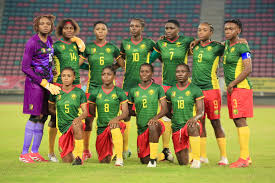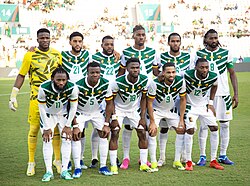The 2024 season has thrown Cameroon into an unexpected whirlwind. With only a few months remaining until AFCON 2025, their position in the 2026 World Cup qualifiers is anything but safe. They currently stand third in Group E, trailing behind Libya and Angola, two sides they’ve traditionally had the upper hand on.
However, form has betrayed them at the worst possible time. Cameroon’s loss to Namibia has exposed more than just weak tactics; it has raised existential questions about leadership, selection, and whether the Indomitable Lions have lost their roar.
Their September friendlies against Ivory Coast are more than just preparation—they’re psychological battles. Historically, these matches offer a window into tactical adjustments, but this year they also test Cameroon’s resolve under pressure. Without a strong showing, their confidence heading into the do-or-die Libya clash in October may falter beyond repair.
Why the Cameroon vs Libya 2026 WCQ Game Is Do-or-Die
Cameroon’s most crucial match in recent history is undeniably their October 10 clash against Libya. The stakes are unmissable: a loss would mathematically eliminate them from 2026 World Cup contention. Libya’s surge in form, combined with Cameroon’s dwindling morale, means this match could signal the end of their qualification dreams.
Libyan teams are known for exploiting defensive lapses—a troubling statistic considering Cameroon has conceded 8 goals from set-pieces alone in 2024.
This isn’t merely a football match; it’s a national referendum. The squad will either rise to the occasion, galvanised by desperation, or crumble under the mounting expectations. Rigobert Song must manage egos, injuries, and political pressure to produce a miracle. Failure would not just end a campaign—it would trigger sweeping changes at the FECAFOOT level.
Rigobert Song Tactics 2024: A 5-3-2 System Under Fire
When Rigobert Song introduced the 5-3-2 formation, the promise was a blend of solidity and fluidity. Instead, what fans saw was a tactical system that stifled creativity and exposed sluggish wing-backs. Against Namibia, Cameroon’s full-backs were too slow to track runners, leaving the defence exposed time and again. The system lacked vertical movement and rarely transitioned well into attack.
Analysts believe a shift could come if Nicolas N’Koulou is pushed into a central midfield role, allowing for better ball progression and increased control. Until then, the current tactics are predictable and easily exploited. Song’s tactical rigidity might be his biggest enemy, unless he adapts before October.

Set-Piece Meltdown: Why Cameroon Conceded 8 Goals From Corners
Cameroon’s Achilles’ heel in 2024 has been defending dead-ball situations. Out of 11 goals conceded, 8 have come directly from corner kicks or free kicks. The zone-marking system they currently employ leaves them vulnerable to second balls and late runs into the box. Furthermore, poor communication between the goalkeeper and centre-backs has compounded the problem.
The coaching staff must revisit their defensive training routines. Set-piece drills need to be more intensive, especially with better player marking assignments and anticipation. The lack of urgency shown during these plays is baffling, especially from a team with such a proud football heritage.
Read Also: Yankees Perfect Games: History, Secrets & Future
Conclusion
Cameroon’s national football team stands at a crossroads in 2024. With World Cup qualification hanging by a thread and internal controversies unsettling the camp, the road ahead is daunting but not impassable. Tactical missteps, injuries, and squad inconsistencies have all played a role in their current crisis, yet the passion of their fanbase and raw talent within the squad still offer hope.
As the October showdown with Libya looms large, the nation waits with bated breath. The outcome will not only shape their 2026 journey but could also redefine the future of football in Cameroon, from grassroots development to federation leadership. The Indomitable Lions have always thrived on adversity. Now is the time to prove that their name is more than just a title—it’s a legacy.
FAQs
Why is the match between Cameroon and Libya in October 2024 so important?
This match is a pivotal World Cup qualifier, and a loss would likely eliminate Cameroon from the 2026 FIFA World Cup. It’s considered a “must-win” because they currently sit third in their group, behind both Libya and Angola.
Failure to secure three points would mathematically and psychologically end their qualifying campaign.
Where can fans watch Cameroon’s national football team games live?
Legal streaming options include FIFA+, although it offers delayed broadcasts. CRTV remains the official channel, but accessing it from abroad requires the use of a VPN.
Some fans also resort to unofficial YouTube streams, though these are risky and may violate broadcasting rights.
Why is Rigobert Song’s 5-3-2 formation being criticised?
Song’s formation has drawn criticism due to its lack of fluidity and defensive lapses. The wing-backs have struggled to keep up with quick opposition attacks, and the midfield lacks cohesion.
Critics argue that the system stifles attacking play and exposes the defence to counterattacks and set-piece vulnerabilities.
What’s the controversy surrounding Samuel Eto’o’s influence on the team?
As FECAFOOT president, Samuel Eto’o has made bold and sometimes controversial decisions, such as dropping players like Moukoko.
His grassroots-focused agenda has been praised, but his squad selections and political manoeuvring have created friction within the federation and among fans.
Who are the young talents to watch in the Cameroon national team?
Mandela Omgba, a 16-year-old striker, has generated massive buzz as a potential successor to legends like Samuel Eto’o.
Another new addition, Leonel Ateba, is being fast-tracked into the senior team from the U-23s, raising questions about whether youth development is being rushed or revolutionised.










